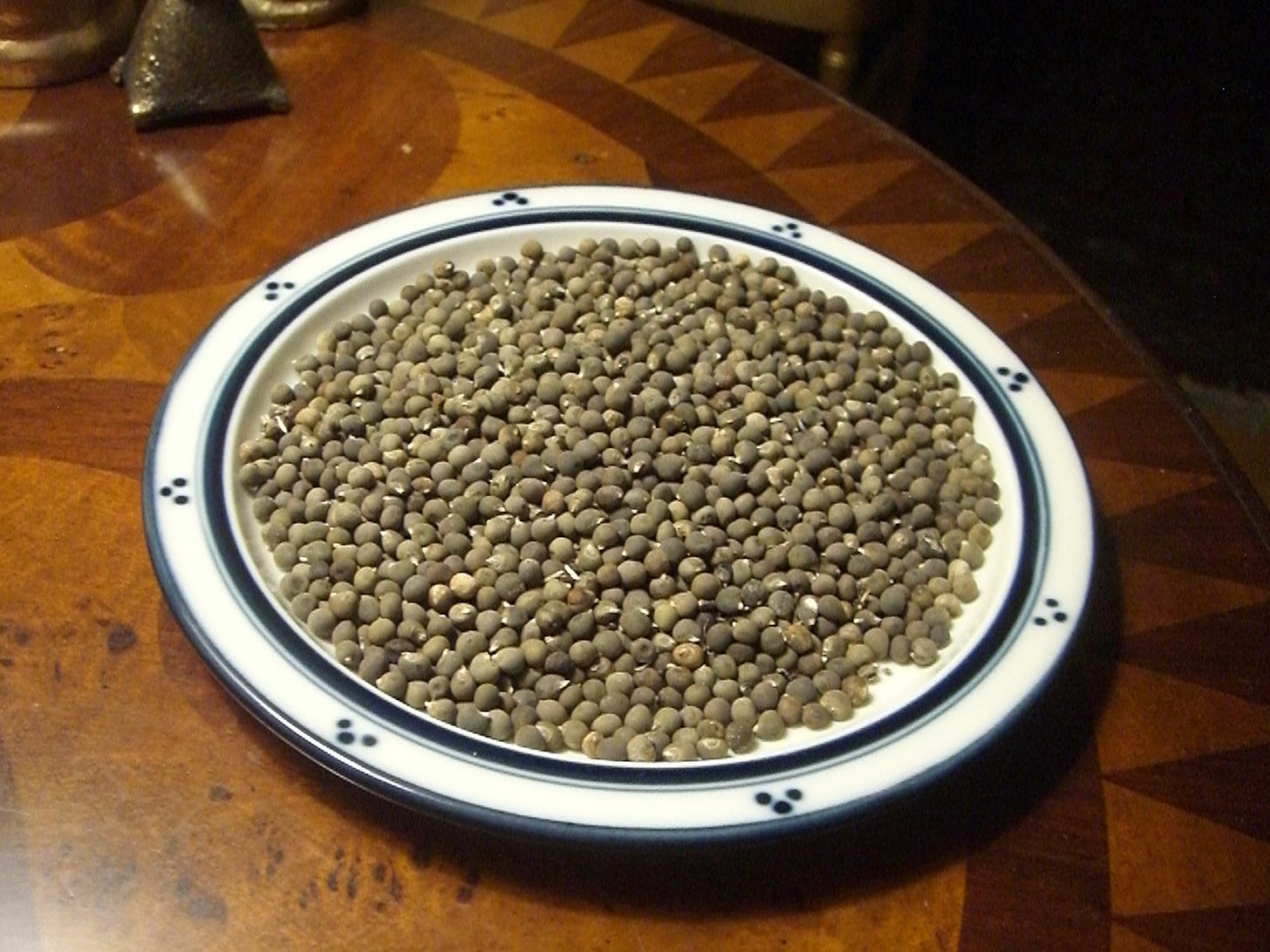Okra Seed Oil by Oliver Farms
Back in the bicentennial year I remember listening to a radio interview with Herman Kresse, a food chemist from Texas, who insisted we were eating the wrong part of the okra. Why are we consuming the immature pods? “We should let the pods mature, extract the maximum nutriment from the soil, and consume the seeds extracted from the dried pods.” He was one of the “scientifically-created food” visionaries who were so common during the height of the space age. He envisioned artificial meat from the protein milled from the dried seeds. I remember him saying okra seed had almost as much protein as soy beans (an extraordinary fact), better vegetable oil, and an abundance of vitamins, minerals, and fiber.
I never wanted to eat pseudo meat. But I do love good vegetable oils, and have spent many hours delving into the history of benne oil (wonderful!), southern olive oil (a chronicle of disappointments until recently), peanut oil (surprisingly various in quality from splendid to mediocre, depending on the variety pressed), sunflower oil (light and clean tasting), cotton seed oil (the original industrial food ingredient—odorless, colorless, tasteless). I even briefly examined the history of okra seed oil—there was an initiative after WW2 in LSU to promote it—but it was directed to making a product on the lines of David Wesson style cotton seed oil—entirely neutral and colorless. Why go the route of tastelessness, when every report of persons who pressed and tasted okra seed oil said that it was quite pleasant?
I had never tasted okra seed oil myself. Whenever a batch of okra seed came my way, if I wasn’t banking it for future planting, I experimented with the many recipes for okra seed coffee dating from the Civil War. Some people called the beverage okra seed hot chocolate. The brews I made, even when I parched the seed, approximated neither drink. For the life of me I could not understand why anyone, no matter how desperate, wanted to drink cups of this carboniferous brew.
Clay Oliver—the champion of southern artisan oils down in Pitts GA—had read about the virtues of okra seed oil in its virgin state—cold pressed from dried seed. He decided to run a test pressing, so yesterday morning a bottle arrived in the mail for me to taste.
I tasted it—and . . . it was splendid. So much better than Herman Kresse’s vague accolade. It is a medium bodied oil with a mellow vegetal bloom and a slight peppery finish. It is like no other oil in its flavor profile. Like any good salad oil, it is not so pronounced in flavor that it eclipses that taste of one’s greens. Indeed, its quality was so much better than I had any reason to anticipate that I began to wonder why this lipid had not been embraced by 20th century food processors. Is it heresy to say that I like the taste more than the rather banana tinged olive oil produced by the Georgia Olive Farms?
So, Clay Oliver, bring it on! Let me be the first to say, the South needs okra seed oil.





